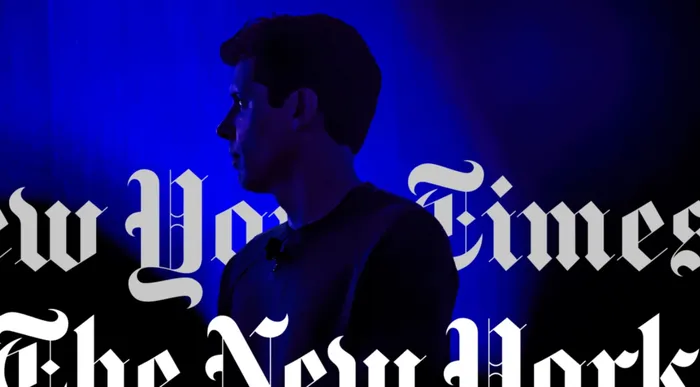
On Wednesday, The New York Times Company became the first major publication to sue OpenAI and Microsoft for copyright infringement. The lawsuit is a clear indication that tensions between media organizations and the creators of AI tools, such as ChatGPT, are heating up.
In the lawsuit, the Times alleges that the companies used published work from the outlet to train automated chatbots. According to the complaint, Microsoft and OpenAI’s “unlawful use of The Times’s work to create artificial intelligence products that compete with it threatens The Times’s ability to provide that service.” While the complaint alleges “wide-scale copying” used to train chatbots, it claims that OpenAI “gave Times content particular emphasis.”
Essentially, OpenAI’s training techniques enabled the company to piggyback on the Times’s “massive investment in its journalism” without authorization or payment, the complaint alleges. While the information—according to the complaint—appears to have been copied to give users access to that information through OpenAI and Microsoft, the Times notes that the company’s chatbots are now operating in direct competition with the Times as an information source.
The lawsuit did not include a monetary demand, but it did ask for the companies to destroy any data that came from the outlet. Neither Microsoft nor OpenAI responded to a request for comment.
In a statement, News/Media Alliance president and CEO Danielle Coffey expressed support of the Times’s decision to bring the lawsuit. “The New York Times’s complaint demonstrates the value of quality journalism to AI developers. These companies repurpose and monetize news content, competing with the very industry they are benefiting from. Quality journalism and GenAI can complement each other if approached collaboratively, but using journalism without permission or payment is unlawful, and certainly not fair use.”
The statement continues: “The value of quality journalism has been debated for years. We are at a point where the question is not whether quality journalism should be compensated, rather a question of how much.”
Of course, the suit is not the first against artificial intelligence companies. In February of last year, Getty Images sued Stability AI over claims the company scraped millions of its photos without a license to train its AI tools.
Comedian Sarah Silverman and two book authors sued both Meta and ChatGPT-maker OpenAI in two lawsuits filed in a San Francisco federal court in July. Those suits alleged that materials from the plaintiffs was used without their knowledge or consent. The claims asserted that “when ChatGPT is prompted, ChatGPT generates summaries of Plaintiffs’s copyrighted works—something only possible if ChatGPT was trained on Plaintiffs’s copyrighted works.” The judge dismissed some of the claims, though he did allow the case about the use of copyrighted material to train AI models to continue.
AI companies have explained they believe they’re protected by the “fair use” doctrine, which essentially allows for the use of copyrighted material if the way the material is used meets certain criteria. Now it will be up to the courts to determine if that is correct.
Either way, the conclusion of the Times’s lawsuit will undoubtedly have huge implications for how the battle between AI and media outlets plays out—either forcing AI companies to revamp the ways they use published journalism to train their models or requiring news outlets to rethink how they are monetizing their content if it can all be scraped by AI tools.
BY SARAH BREGEL
Related Topics:
